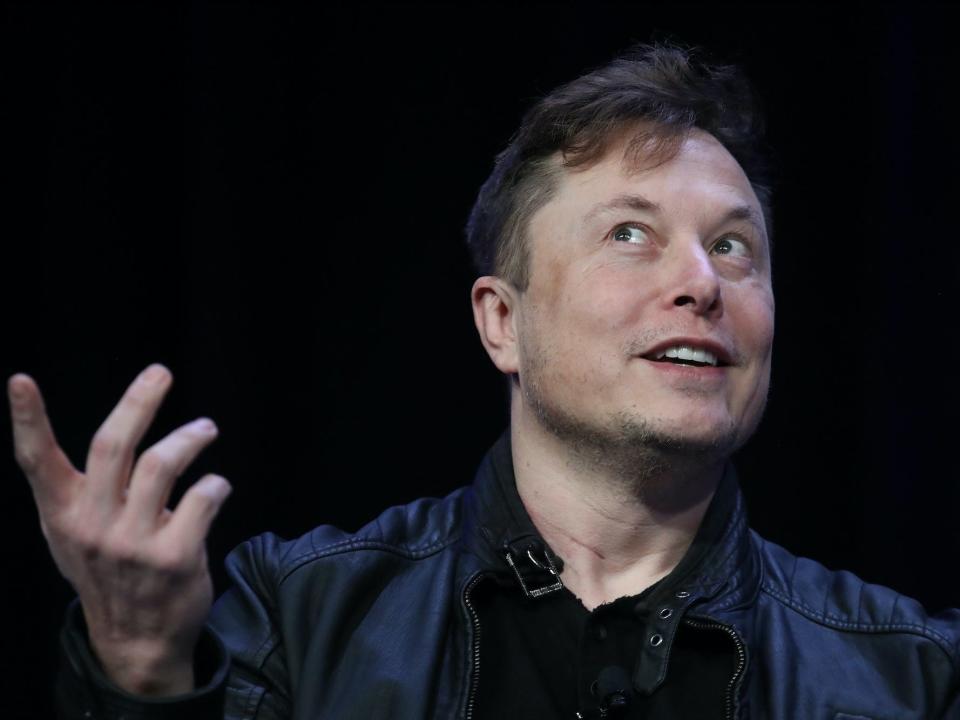'Your tweets are a blight': Elon Musk got roasted in a poem written by the AI created by a company he helped found

Win McNamee/Getty Images
An artificial intelligence-generated poem roasted Tesla CEO Elon Musk for his infamous Twitter presence, according to The Economist.
The poem was created by GPT-3, the third-generation machine learning model from the San Francisco-based OpenAI, which was cofounded by Musk.
The algorithm has garnered attention in the AI world for its advanced capabilities in interpreting datasets to churn out human-like text — in this case, a poem.
The poem is entitled "Elon Musk by Dr. Seuss" and includes a reference to a 2018 tweet that landed him in hot water with the SEC, resulting in his exit as Tesla chairman and a $10 million fine.
Tesla CEO Elon Musk's notorious Twitter presence was the inspiration for an AI-generated poem, written using the software from OpenAI, the company Musk himself helped found.
According to The Economist, the San Francisco-based OpenAI supplied certain people, like artist Arram Sabeti, with an early version of the GPT-3 language in mid-July to test its capabilities.
Sabeti used the algorithm to generate the poem, entitled "Elon Musk by Dr. Seuss," which you can read a snippet of below:
"The SEC said, "Musk,/your tweets are a blight./They really could cost you your job,/if you don't stop/all this tweetingat night."/…Then Musk cried, "Why?/The tweets I wrote are not mean,/I don't use all-caps/and I'm sure that my tweets are clean."/"But your tweets can move markets/and that's why we're sore./You may be a genius/and a billionaire,/but that doesn't give you the right to be a bore!"
Sabeti's poem is published in full here.
The AI-generated poem references Musk's oftentimes incendiary comments posted on Twitter. In one case, the Tesla CEO took to the platform in August 2018, tweeting that has was considering taking the company private at $420 per share and that funding was secured. The tweet "caused significant confusion and disruption in the market for Tesla's stock and resulting harm to investors," according to the Security Exchange Commission, which filed a lawsuit against Musk. The SEC alleged that Musk "falsely indicated" that the company had secured funding on Twitter and that the $420 share price was 20% higher than it actually was at the time.
The lawsuit resulted in Musk stepping down as Tesla chairman and coughing up a $10 million fine.
GPT-3, the five-year-old research lab's third iteration of the language-generation model, has been heralded as a piece of advanced artificial intelligence technology. It can interpret patterns in text created by humans and use that insight to churn out human-like language based on a prompt.
OpenAI's new tool has been called "groundbreaking," despite having some "serious weaknesses," but a discussion has long existed concerning how artificial intelligence can contribute to biased language and misinformation. The company had previously said the language was too dangerous to release as open-source software since it could easily be misused. But in mid-June, the firm said it would start selling the algorithm in a private beta.
Musk cofounded OpenAI in 2015 with a handful of entrepreneurs, including ex-Y Combinator president Sam Altman. Musk said last February that he had not been "closely involved" with OpenAI for over a year, as he was focusing more closely on Tesla and SpaceX. He also said he "didn't agree with some of what the OpenAI team wanted to do."
Read the full feature on The Economist here.
Read the original article on Business Insider

